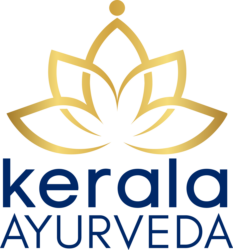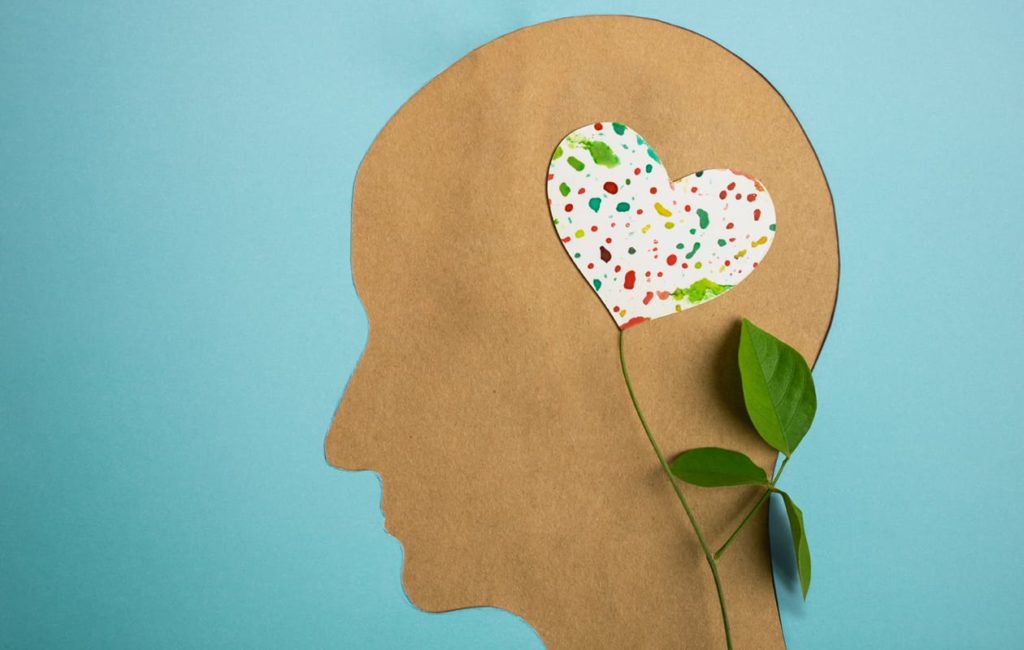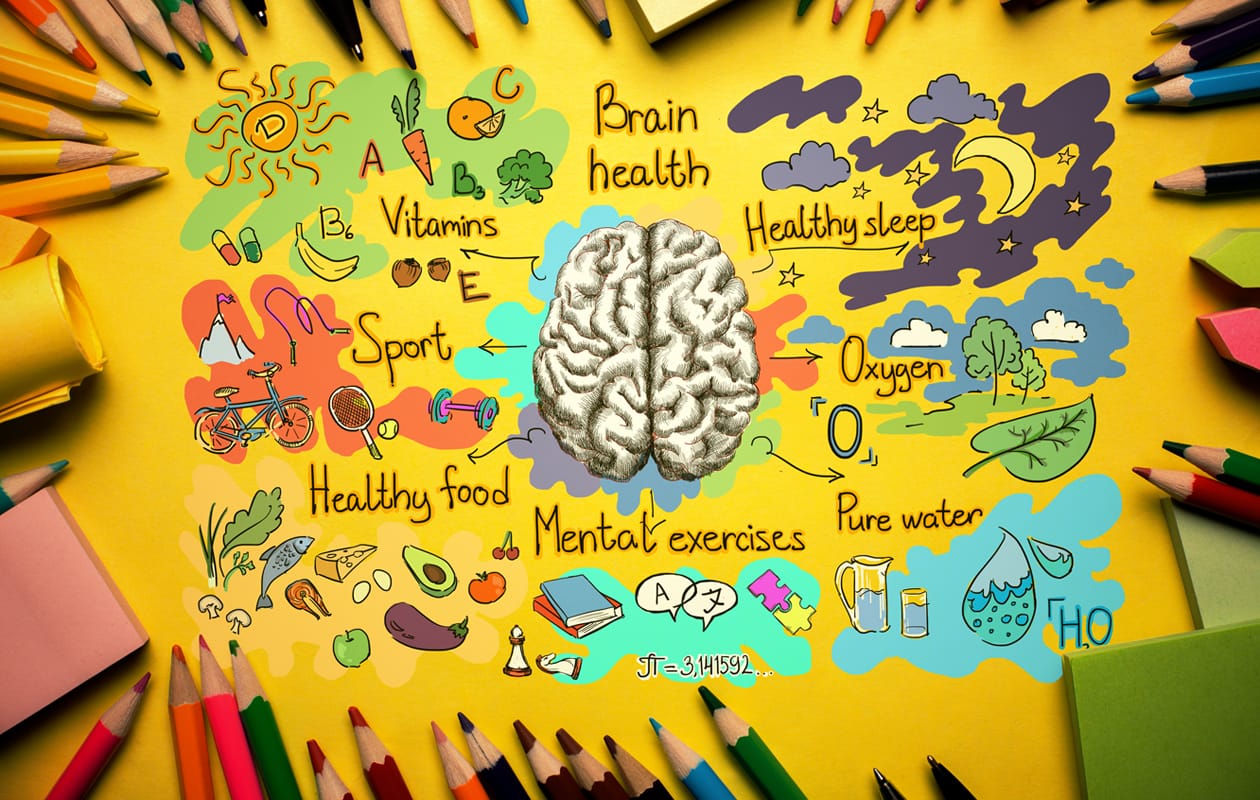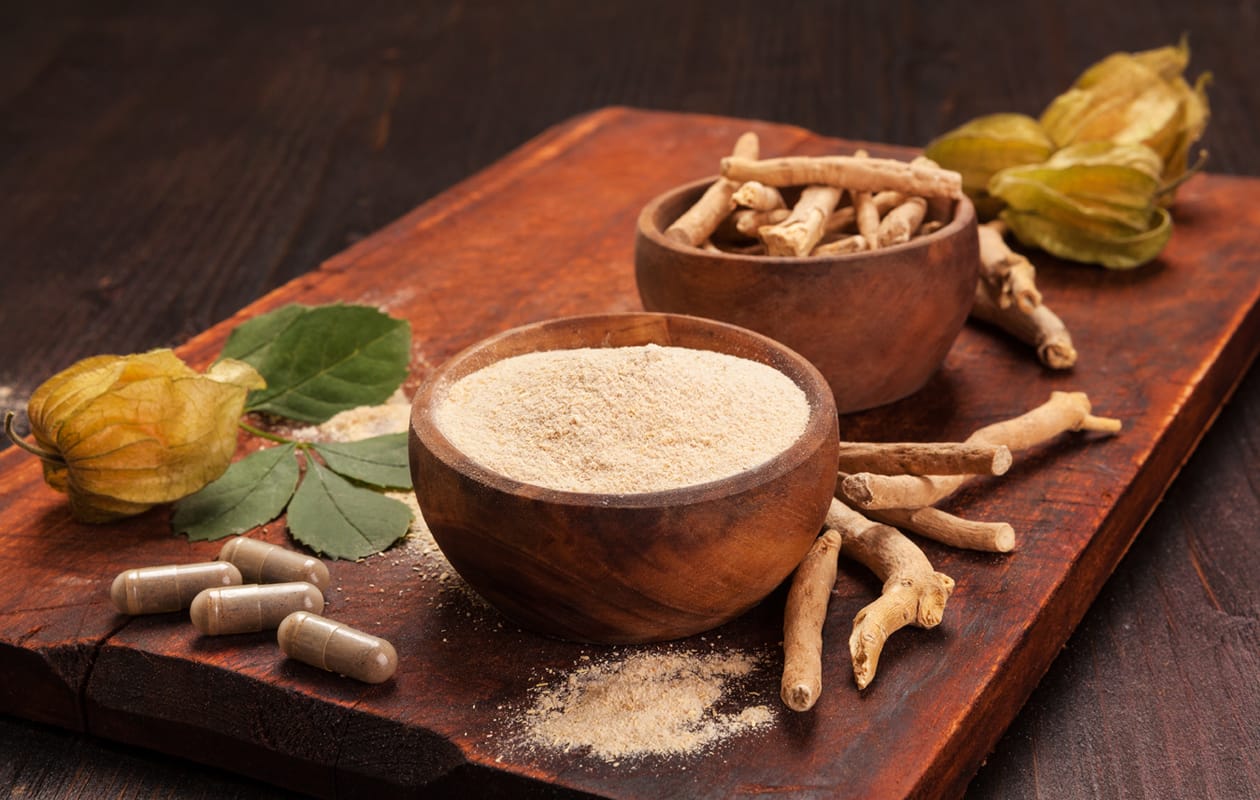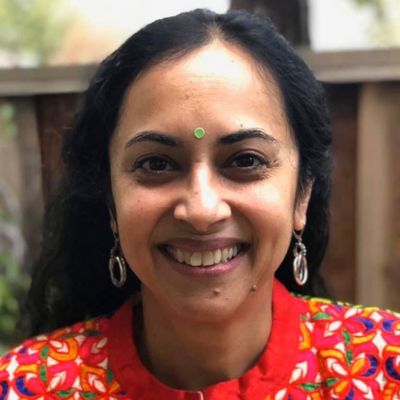What are the fundamental principles in Ayurveda that govern mental health? In this article, we’ll explore how the ancient wisdom guides us to care for mental health, naturally. We’ll also uncover the revelatory connection between mental health and immunity.
« During pandemics, people who are not mentally resilient require extra assistance, breaking down with low thresholds for trauma and showing poor stress management
—Dr. Bhattacharya, Bhattacharya, Fulbright Specialist, Public Health-Integrative Medicine, Weill Cornell Medical College and an Ayurvedic Practitioner
The COVID-19 pandemic led to another crisis: it took a major toll on the mental health of millions across the globe. The past year, many people experienced increased worry about their health, jobs and their loved ones. Many have suffered from loneliness or lack of space in relationships, and are continually anxious about the economy and how the future will unfold. The latest data reveals staggering spikes in anxiety, depression, substance use, drug overdose and suicide rate. A recent survey by the CDC on adult mental health found that more than 40% of U.S. adults have reported at least one mental health issue during this pandemic, and more than 1 in 10 adults had seriously considered suicide. During this period, 7 out of 10 young adults (18-24 years old) reported experiencing symptoms of anxiety and depression, and more than 25% have seriously considered suicide.
What better time to talk about Ayurveda and mental health?! Vaidya. Jayarajan Kodikannath, Director of Kerala Ayurveda USA addressed this in a “Wednesday Wisdom” Facebook live session with the insight that stress is our own internal response to circumstances outside of us. There was an outpouring of concerns participants shared, from loneliness to extended media time, insomnia, anxiety, food cravings and worries about the future. Let’s look at the Ayurvedic perspective of how this occurs and what we can do about it for ourselves, clients and dear ones.
Ayurvedic psychology and mind-body connection

Case scenario: Sam’s linked anxiety
10-year-old Sam’s Mom takes him to a Vaidya (Ayurvedic Doctor) because he has allergies and asthma. The minute Sam sits across from him, he bursts into tears. His Vaidya very kindly reassures him, “Don’t worry, you’ve revealed what is bothering you.” Sam has an anxiety diagnosis from his therapist, and his Vaidya has observed how this is linked to his other symptoms as a severe imbalance of the Vata Dosha, or air and ether energy principle. He has the typical expressions: the allergies and asthma, which his mom has observed; additionally, he experiences sensitivity, random aches and pains, restlessness, sleep issues and spacey dreams. After a protocol of Vata management, not only do Sam’s asthma symptoms improve but his anxiety reduces, and he grows in confidence.
Mind and body: it’s all the same
Ayurveda defines health as Swasthya (being balanced in the self), enumerated in the root text, Sushruta Samhita as:
Sama Dosha Sama Agnischa Sama Dhatu Mala Kriyaha |
Prasanna Atma Indirya Manaha Swastha Iti Abhideyate ||
Health is a state of equilibrium of the Doshas (energy principals), Agni (digestive and metabolic fire), Dhatus (tissues), Malas (excretion) and homoeostasis involving a blissful state of spirit, sense organs and mind.
Ayurveda is a holistic science that clearly acknowledges the mind-body correlation. Ayurvedic mental health management (Manas Shastra) focuses on prevention through gentle, natural, effective and long lasting means to reduce the tendency of recurrence. Its healing methods promote higher self awareness, balance in the body and contentment in the mind. Psychiatric ailments are clubbed under “Unmada.” Ayurveda does not stigmatize mental health and every Ayurvedic intake delves into a Sattva Pariksha, or mental analysis as part of the classical Dasvidha Pareeksha, or ten fold wellness assessment. Modern medicine is increasingly emphasizing the the mind-body correlation, the gut-brain axis, and has linked stress and anxiety to cardiac ailments, gastrointestinal issues and type 2 diabetes.
Ayurvedic science of mental health
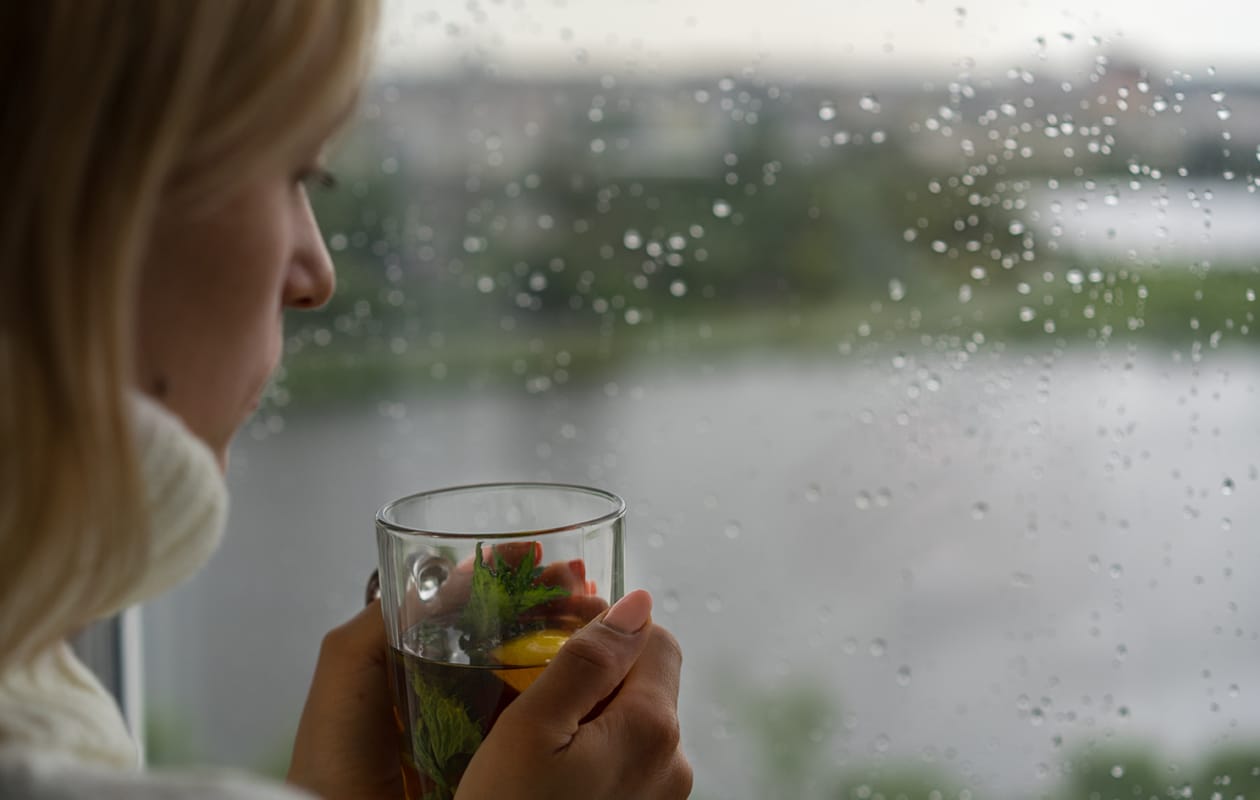
We’ve all had days sitting around like couch potatoes, munching junk, binge watching shows and feeling lethargic; other days when we’ve been super productive and competitive and yet others when we’ve felt strong, light, inspired and happy for no apparent reasons.
Gunas and mental health
There are three attributes of the mind:
- Tamas is synonymous with laziness and lethargy. It has its role: it enables us to sleep and be restful. In an imbalanced state, it can lead to depression or serious psychological disorders such as suicidal tendencies, in which case one must seek professional help.
- Rajas is at the opposite scale of Tamas, characterized by activity and pursuing one’s passion. Extreme Rajas leads to physical restlessness and an inability to relax. In a Rajasic state, you could be bombarded with thoughts and exhibit impatience, indecisiveness, irritability, anger and aggression. In a pathological state, Tamas is like violence towards the self while Rajas can be equated with violence towards the outside world.
- Sattva: You can’t live devoid of Tamas and Rajas; Tamas is needed to rest and Rajas is needed to act. Sattva is the natural state of the mind in balance; a pure, clear quality of the mind that enables you to relax, be in harmony and feel cheerful while giving your 100% effort in getting things done. Sattva endows us with good mental health, happiness and wisdom.
Doshas and mental health
The three energies that influence the structure, function, tendencies and affinities of the body are called Doshas and our unique body constitution or Prakriti is a combination of these. It is determined at the time of conception and while Gunas can change, our basic Prakriti does not. When Doshas are in balance, the mind is balanced and pleasant. Vata personality people tend to be creative and imaginative; Pitta-dominant people are intellectual, analytical and motivated; and a Kapha personality is nurturing and loving.
A person with Vata dominating would typically have the brilliant, creative idea to commence a startup, a Pitta person would have the fire to implement the idea and lead the company, and a Kapha person would nurture and hold the stable ground to maintain and keep it going as a steady business.
A Vikriti or imbalance in the Doshas impacts the mind or Manovaha Srotas (body channel responsible for mental function). Here are some typical expressions:
- Vata imbalance manifests as restlessness, fear, anxiety and loss of focus; faith and grounding are an antidote.
- Pitta imbalance manifests as anger and irritability and showing compassion and letting go of judgements are an antidote.
- Kapha imbalance manifests as lethargy and depression and valor and non-attachment are key to letting go.
Conversely, when the mind is in a state of imbalance, the Doshas can go out of balance. For instance, if you encounter grief and fear, Vata Dosha could go out of balance. A Vata pacifying protocol would involve utilizing a routine, nurturing practices, unctuous warm food with sweet, sour and salty tastes in the Shadrasa (six tastes according to Ayurveda), warming spices, Abhyanga (self massage), light, restorative yoga and meditation. Cleansing or Shodhana is an important guideline here because not only does it help in getting rid of imbalances, it also prevents future imbalances.
Causes of mental imbalances (Manovikara)
Succumbing to food cravings? Binge watching TV instead of working? Cut yourself some slack; awareness of the factors at play helps restore balance.
Other than a genetic propensity, the same factors that cause disease at the physical level impact mental health, but one that we pay particular attention to is Prajnapradha.
Parinama – time
The external environment impacts diseases, like an extreme variation in temperature. Awareness of these factors helps in restoring balance, for instance following Ritucharya guidelines to balance Vata during fall would help with conditions like anxiety, insomnia and focus-related issues that are linked to Vata and could get aggravated.
Asathmya Indriyartha samyoga – missuse of senses
Improper and excessive utilization of the sense organs results in under- or overstimulation of senses, which can harm our mind-body complex.
Prajnaparadha – an insult to the intellect
This is the main cause of mental disorders (caused by Rajas and Tamas) in which we knowingly indulge in wrong speech, actions and thoughts. This involves Dhi (intellect), Dhrti (will power) and Smriti (memory) going out of balance. These are the working parts of the brain, and if they’re in order, we make good decisions that nurture better physical, mental, emotional, social and spiritual health.
Ojas, immunity, and mental health
Strengthening Vyadhikamatvam, or immunity, is correlated with Ojas. Ojas is overall vitality and strength, including mental health. Boosting mental health also has a positive impact on immunity and Ojas. Ojas is the essence of all the bodily tissues and the ultimate resort of both our nutrition and our genetic inborn strength. Depleted Ojas impacts mental health, and psychological factors like grief or anxiety could trigger a depletion in Ojas and immune resistance. A paper on the “Public Health Approach of Ayurveda and Yoga for COVID-19 Prophylaxis” discusses that the concept of stimulating immune function is a cornerstone of Ayurvedic practice in an integrative approach.
Another study emphasizes that psychological distress is a common response to the COVID-19 outbreak, which may affect the immune response to respiratory infections. It points out two scientific models corroborating Ayurveda’s efficacy:
- Evidence of the link between nervous, endocrine and immune systems; stress and emotional disorders can modulate the immune response in infections.
- Psychoneuroimmunology and the ‘meaning response’ – what effect does a treatment that works via a non-conventional ‘scientific’ paradigm have, through the meaning ascribed to it. For instance how are certain herbs ‘perceived’ as strengthening?
Dr. David Frawley, a world-renowned authority in Vedic Studies, Yoga and Ayurveda talks about improving our individual and collective physical and psychological immunity during the pandemic with Yoga and Ayurveda. He stresses the importance of both physical and psychological immunity. Psychological immunity is indicated by our ability to withstand difficulties, opposition, stress and uncertainty. It is also indicated by our capacity to tune in with the peace of our own inner Being and Divine Self. Much of Frawley’s life work has been devoted to translating the ancient texts and illuminating how Yoga, mantra, connecting with nature and meditation can increase our psychological immunity.
Ayurvedic management of mental health enhances immunity as it inherently acknowledges the connection between both. For better mental health, Ayurveda works towards homeostasis by balancing Doshas, which leads to better Ojas and immunity.
Traditional Ayurvedic management of mental health
Ayurvedic protocol involves a thorough assessment of constitution (Prakriti) and imbalance (Vikriti), from which customized suggestions are developed by the practitioner. The following are common therapies used for cases of mental health.
Daivyavyapashraya
Spiritual therapy that includes the use of prayer, Mantra, chanting and wearing precious stones. Faith in nature, a higher power or as per one’s personal belief system helps alleviate stress. Pandemics are part of the Japapada Dvamsa Vyadhi discussion in Charaka Samhita, the Ayurvedic root text; in ancient times they would play drums in unison across the land during epidemics and people would clap which was a type of marma for the heart, lungs and kidney and would help raise Prana or the subtle life force.
Satvavajaya
Ayurveda recommends psycho-behavioral therapy by a qualified Ayurvedic Practitioner.
Yuktivyapashraya chikitsa
Includes Shodhana (cleansing therapies/Panchkarma), and Shamana (pacification or palliation) with herbs, nutrition and lifestyle therapy with emphasis on Medhya Rasayanas like Guduchi or Amruth, Brahmi, Yashtimadhu, Amalaki, Ashwagandha, Shanka Pushi, Vacha, Holy Basil, Guggulu, Brahmi Ghrita, Kalyanaka Ghrita, Chyawanprash and Manasamitra Vatakam.
Achara Rasayana
Mental hygiene practices There is a concept of psycho-neurological immunology (PNI) in modern medicine; neuro-hormones that enhance immunity, which is similar to Achara Rasayana or rejuvenation through practices like being truthful, non violent, practising meditation and cultivating a positive state of mind.
Other techniques
Yoga, Pranayama, Meditation, self reflection and Marma Therapy help alleviate stress, boost immunity and increase Sattva. Sadvrutta practices like preventive health routines, following natural rhythms and codes of conduct that improve mental, physical and social health enhance resilience. Soothing the senses and avoiding sensory overload calms the mind and is part of a Dinacharya practice that includes:
- Eyes/Visual – Akshi Tarpana, Color Therapy, periodically resting the eyes and doing eye exercises
- Nose/Smell/Respiration – Nasya, Neti Pot, steam inhalation and Aromatherapy with essential oils
- Skin/Tactile – Abhyanga, Shirodhara and Marma. These practices go much beyond soothing the tactile sense and are employed in many therapeutic ways.
- Ears/Hearing – Karna Poorna (medicated oil in the ears), Chanting and Soothing music
- Tongue/Taste – Tongue cleaning, having nourishing food at regular meal times, herbal teas, avoiding overeating
COVID-19 recovery could be arduous and it is commendable that the Indian government has issued guidelines that pay attention to the vital aspect of mental health by recommending in an integrative manner, Ayurveda, herbs like Turmeric milk and Chyawanprash, Yoga, counseling and social support. India is the birthplace of Ayurveda where it is practiced as a form of medicine and gives paramount importance to holistic health.
The entire consciousness is connected and this is a tough time we are navigating. In the words of Dr. Frawley, “Outer difficulties push us back on our inner strength. We have been relying too much on external factors for our wellbeing. We must recognize that our ultimate strength lies within our own consciousness for which this current human life is but one episode in a greater cosmic existence.”
Om Sarve Bhavantu Sukhinah Sarve Santu Nir Amayaah
Sarve Bhandraani Pashyantu Maa Kaschid Dukha Bhaag Bhavet
Om Shanti Shanti Shantihi
May all beings be happy, may none fall ill, may all behold auspiciousness everywhere, may none ever encounter sorrow. May there be peace.
